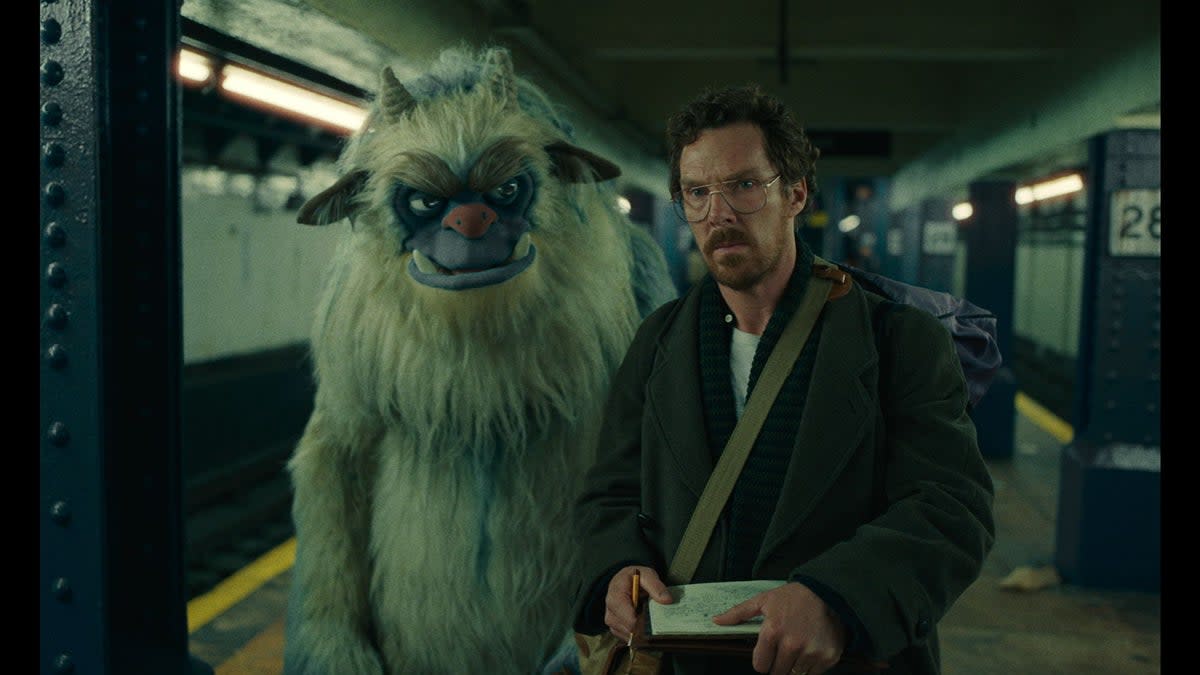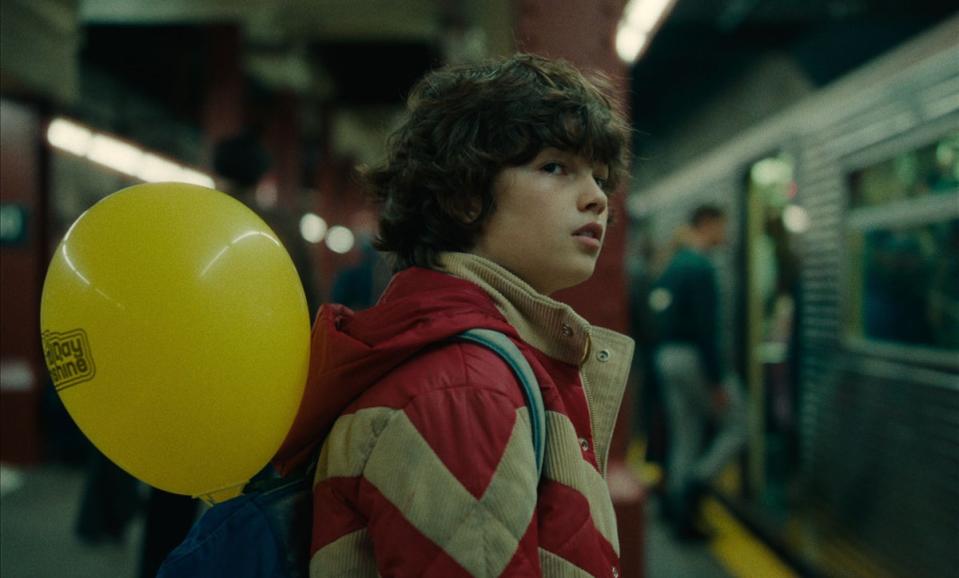Eric on Netflix review: Benedict Cumberbatch's performance is totally absorbing in its utter vileness

Eric is not the programme I thought it would be. What I knew before watching was that it was a six-part thriller about a missing nine-year-old boy, Edgar, and his father Vincent, a puppeteer played by Benedict Cumberbatch, who is followed around by a massive blue and white furry monster called Eric.
“The real monsters aren’t under your bed”, screamed the trailer. Not my kind of show, I thought. Too surreal.
But oddly, Eric the monster is quite a small part of the overall tale. The monsters which really rule are the ones in the shadows, in your head, in the grim underbelly of 1980s New York. The monster that I worried would dominate the narrative, making it just a little too weird, only appears at the end of the first episode, and very little in the second – which at first makes its presence even more incongruous.
Instead it is superseded by the many threads of storyline dangling around the first few episodes, police corruption to the city’s homeless problem to affairs to alcoholism to the AIDS crisis… it goes on. At first, it feels like too many.

The series follows a familiar set-up: the first hour-long episode sets the scene. The second, is for character development. At this stage, fed up with the knotty mess of seemingly unrelated storylines, odious characters and a large furry monster, I would have given up, had it not been for the fact it’s written by the Emmy-winning British playwright and screenwriter, Abi Morgan – I loved The Split, and The Hour.
Now onto the plot itself. We have racism – an unsolved case of a missing black boy, forgotten by the press and the city because of his race, his mother suspects. We have homophobia – the detective unable to share with his colleagues his sexuality and the fact that his partner is seriously ill with HIV and AIDS.
We have sexism – fathers seen as secondary parents, uncaring, unnurturing, and distant. We have a fundamental lack of understanding of mental health, dismissal of serious issues as simply “mad” – which is, we are led to presume, where the monster comes in. “He lurks behind us. He is the very best and the very worst of all of us… He is that which we fear”.
Vincent the puppeteer, a man consumed by his own demons but who works on a show called, ironically, Good Day Sunshine, is stuck in an almost childlike, traumatised state (if you met his vile parents, you’d understand), unable to cope with the world even before his son disappears.

It’s not just his marriage which is failing, it’s his previously popular Sesame Street-style programme, too. And so, Vincent retreats into himself. We are meant to judge his behaviour – not difficult, as it’s relentlessly dreadful. He is angry, rude, a bully, a drunk, emotionally stunted, and egotistical. But does that make him responsible for his son’s disappearance?
Vincent’s wife Cassie seems to be a kind mother to Edgar, but is seriously flawed as a partner. The couple cannot communicate without fighting, and yet think Edgar needs them to stay together. He is clearly traumatised by their relationship, and finds escapism through his drawings.
While Eric the monster seems to be acting as Vincent’s conscience, the big furry chap is in fact his son’s creation. At first an attempt to bond with his distant father, Edgar’s character takes on a life of its own when he disappears.
I thought I’d struggle to watch this as a parent, the ultimate nightmare of your child going missing. But we’re given an out which makes it bearable – this would never happen to me, because I’m not as awful as these people. Will I keep watching? Oh, yes.
Eric comes to Netflix on May 30

